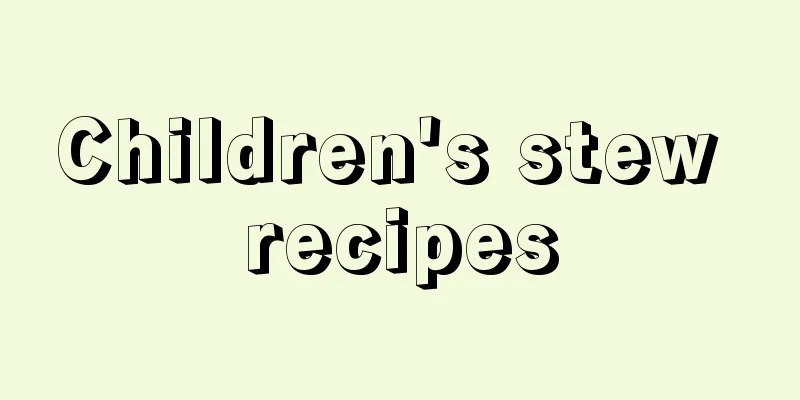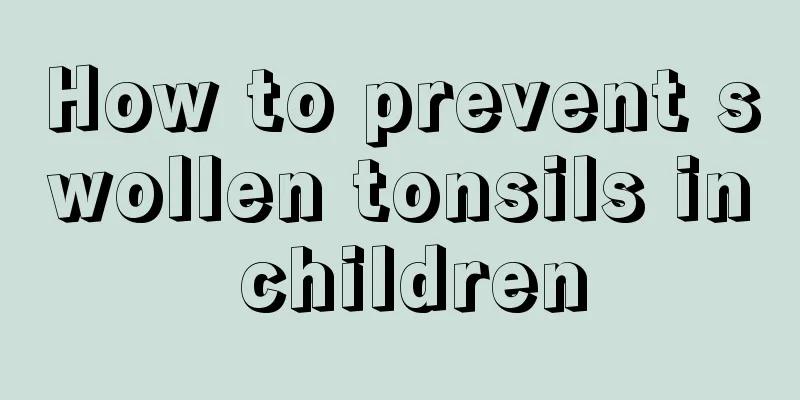What to do if your baby is allergic to milk

|
Transitioning means switching your baby from breast milk to formula milk, or from one brand of formula milk to another. Many babies have weak physical constitutions, and after getting used to one type of milk, they may experience some uncomfortable symptoms such as allergies when switching milk. Although babies' sense of taste is not as sensitive as adults', they are very sensitive to milk. It is inevitable that babies will experience some discomfort during the weaning process. So what should we do if our babies are allergic to weaning? 1. Usually, allergies require medication, but the baby is young and not all medications can be used. A doctor's approval must be obtained before use. In addition to medication, it is also necessary to find out the cause of the allergy and carry out causal treatment. Many times, the reason why babies have allergies is because they consume milk powder that they are intolerant to. Some babies are allergic to protein because they are prone to allergies.2. During the period when the baby is suffering from allergies, the mother must not let the baby continue to consume the milk powder that causes the allergy, but should let the baby consume the original milk powder. After the baby’s allergy is cured, choose new milk powder for the baby. If your baby is feeling unwell due to allergies and has a decreased appetite, you can reduce the amount of food served at a single time and increase the number of feedings. 3. In addition, you must take good care of your baby's skin and apply anti-itch ointment. Otherwise, the baby will scratch his skin every time he itches. Once the skin is scratched, it is easy to be infected by bacteria and cause inflammation. To prevent your baby from scratching his skin, be sure to cut his nails. At night, after bathing your baby, it is best to wipe off the water as soon as possible to keep the baby's skin dry.4. Milk powder is an indispensable nutritious food for babies. If your baby has allergies when switching to milk, you should pay attention to the choice of milk powder. Basically, most of the milk powder on the market are not suitable for babies with allergies, but there is a kind of milk powder specially designed for babies with allergies, which is anti-allergic milk powder. 5. The anti-allergic milk powder has a unique formula and contains hydrolyzed protein, which is suitable for this type of baby. At present, there are three types according to the degree of protein hydrolysis, each with its own characteristics, such as amino acid milk powder, high protein hydrolyzed milk powder and partially hydrolyzed milk powder. Among them, amino acid milk powder and highly hydrolyzed formula milk powder can prevent and treat milk powder allergies, and the taste is easy for babies to accept. |
<<: What to do if your baby chokes on breast milk
>>: What to do if your child has abdominal distension and pain
Recommend
Children's allergic rhinitis medication
In today's urban life, children are more pron...
How to care for children with fever and cold hands and feet
Cold hands and feet are a common symptom in child...
What are the symptoms of acute rhinitis in babies?
Acute rhinitis is a nasal disease and is also a c...
What to do if your child falls on his head
Children tend to be more naughty, so it is inevit...
How to treat congenital thumb deformity?
Congenital thumb deformity is a disease in which ...
What to do if your child suddenly has a high fever
When the weather changes drastically, parents mus...
How to treat children's tooth decay
In life, many people have improper eating habits ...
How to treat a one-year-old baby's cold
Colds are caused by mutated viruses and are chara...
How to deal with a baby's hand fracture
The baby's whole body is very soft and delica...
What are some tips for preventing motion sickness in children?
It is a common phenomenon for children to suffer ...
How long do premature babies usually stay in the hospital?
If the child is a premature baby, he or she gener...
What types of hernias are there in children?
Nowadays, more and more children suffer from pedi...
How to deal with gingivitis in children
Problems with teeth can cause us great pain. Ging...
Why does my four-month-old baby always scratch his head?
For many parents, coming home from a day's wo...
Eight month old baby gnawing teeth
When the baby reaches eight months old, teeth hav...









